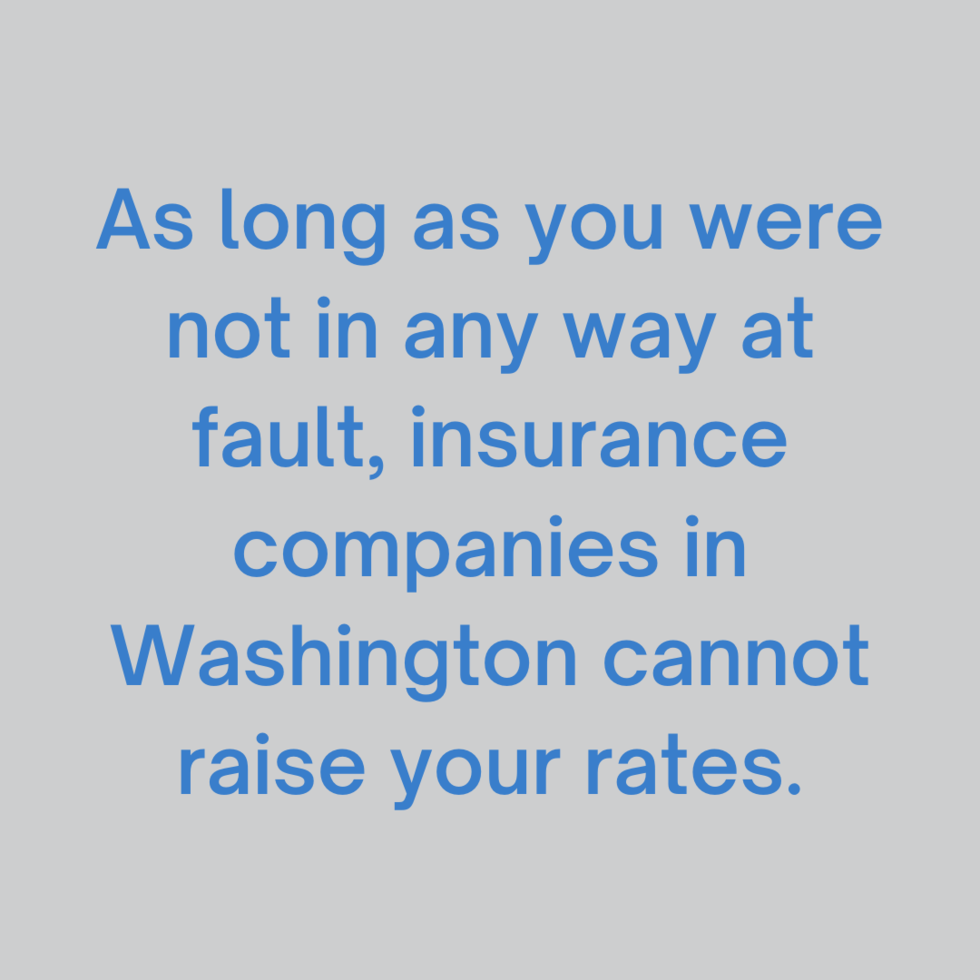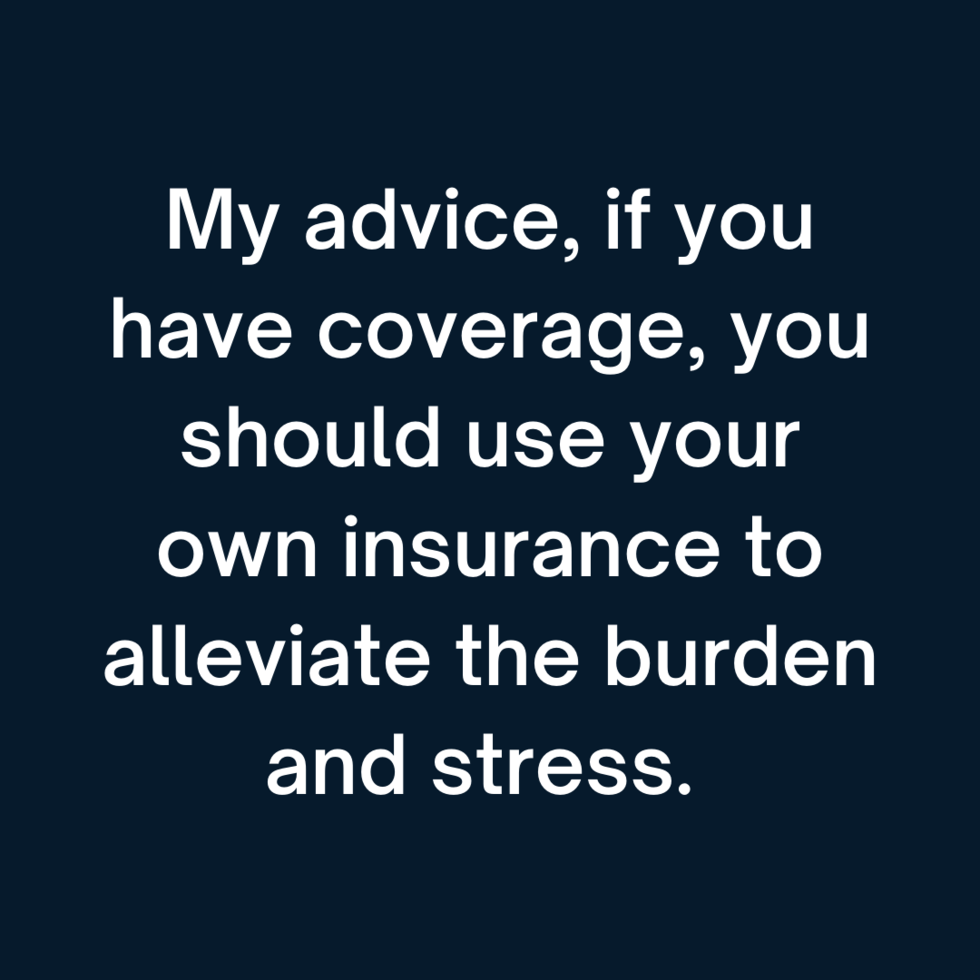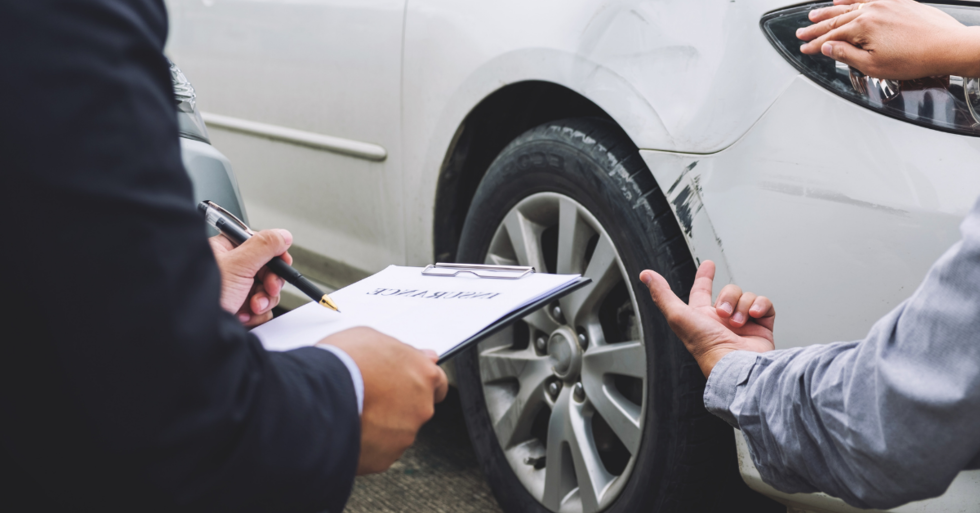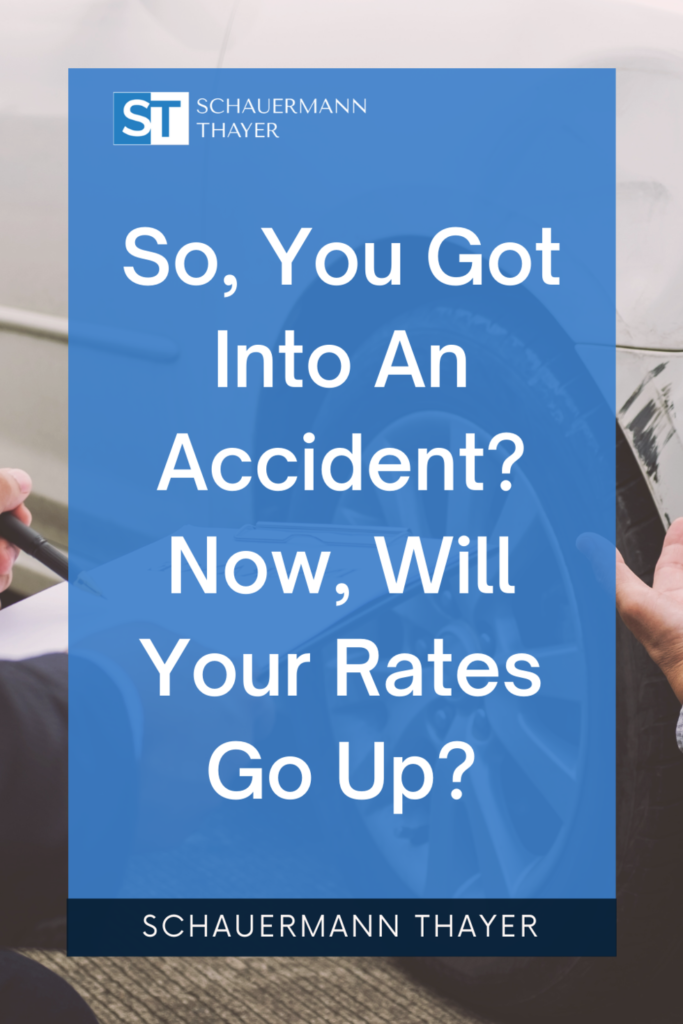WILL MY INSURANCE RATES GO UP IF I REPORT A CRASH?

WILL MY INSURANCE RATES GO UP IF I REPORT A CRASH?
As long as you were not in any way at fault, insurance companies in Washington cannot raise your rates.
I commonly am asked this question by people who are fault-free in automobile crashes.

USE YOUR REQUIRED INSURANCE POLICY AFTER ACCIDENT
It is required by law that everyone in Washington and Oregon maintain an insurance policy. People who have been involved in an accident have an idea that they should make claims only through the other driver’s insurance. Meanwhile, they have medical bills piling up, their car is unfixed, they cannot get in a rental, the other driver’s insurance company is requesting that they make a recorded statement, and they don’t know what to do.
My advice, if you have coverage, you should use your own insurance to alleviate the burden and stress. Most people respond that they would rather not because out of concern that their rates will go up. The fear behind this belief is a myth that every time a collision gets reported to an insurance company, everyone’s rates will go up, regardless of fault. To me, this makes no sense.

YOU WILL NOT BE PUNISHED IF ITS NOT YOUR FAULT
Virtually everyone would agree that a person should not be punished for being injured through no fault of their own. Fortunately, the Washington State Legislature is in an agreement. One of the ways that insurance carriers adjust rates in Washington is by viewing the person’s driver’s abstract. When the insurance company looks at a driving abstract, it is unlawful for them to consider motor vehicle collisions where the person applying for insurance was not at-fault when adjusting rates. RCW 46.52.130(2)(e)(iii).
Your own insurance carrier has legal duties to look out for your best interests and help you with the claim; the other driver’s insurance company does not.

USE YOUR INSURANCE: IT IS FASTER
For property damage, it is usually faster to go through your insurance company; they will deal directly with the other driver’s company to try and recover your deductible. This is required by law. Your own insurer is probably more likely to help with a rental car, too.
If you have personal injury protection (PIP), your insurance company should pay the reasonable medical expenses, necessarily incurred for collision-related injuries. In short, assuming you were not at-fault for the crash, your rates should not change simply because you reported it to your insurance.

About the Author
Benjamin P. Melnick
 Ben Melnick joined the firm in 2018. He graduated from Washington State University with a Bachelor's degree in 2010, and went on to earn his Juris Doctorate from Gonzaga University School of Law. In 2016, he was named as the Clark County Bar Association's Rising Star. His practice focuses on personal injury, auto accidents, biking accidents, wrongful death, and insurance disputes. Outside work, Ben likes spend time with his wife outdoors—mostly running, hiking, and skiing—and playing soccer.
Ben Melnick joined the firm in 2018. He graduated from Washington State University with a Bachelor's degree in 2010, and went on to earn his Juris Doctorate from Gonzaga University School of Law. In 2016, he was named as the Clark County Bar Association's Rising Star. His practice focuses on personal injury, auto accidents, biking accidents, wrongful death, and insurance disputes. Outside work, Ben likes spend time with his wife outdoors—mostly running, hiking, and skiing—and playing soccer.
